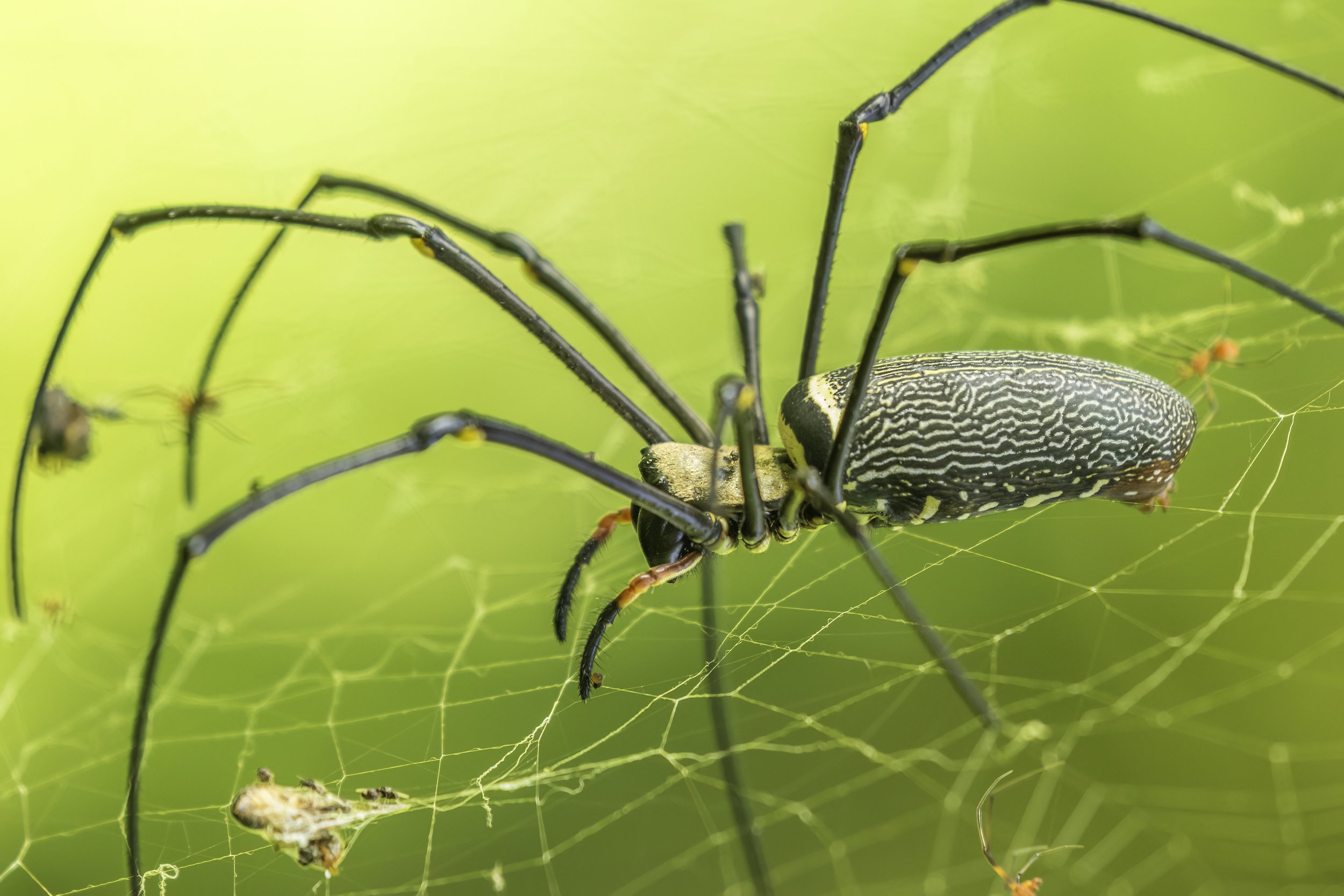Malayan Swamp Babbler/ White-chested Babbler
The Near Threatened Malayan Swamp Babbler (Pellorneum rostratum), previously named the White-chested Babbler, is a species of bird in the ground babbler family, Pellorneidae, that is found in the Malay Peninsula, Sumatra, the Riau Islands, the Lingga Islands and the island of Belitung. It was formerly considered to be conspecific with the Bornean swamp babbler (Pellorneum macropterum). Quite nondescript, these typically move in pairs. Similar in appearance to Ferruginous Babbler but is duller, grayer, and more specialized in its habitat preferences.
Its natural habitats are subtropical or tropical moist lowland forests and subtropical or tropical mangrove forests. It is threatened by habitat loss.
#wildartworks, #Canon, #Babbler, #birdinginthewild, #birdphotography, #Pellorneidae, #whitechestedbabbler, #malayanswampbabbler, #nearthreatened, #Malaysia, #Congkak, #HuluLangat, #Lanchang, #KrauWildlifeReserve, #conservationphotography
Common Woodshrike
The common woodshrike is a species of bird found in Asia. It is now usually considered a member of the family Vangidae. A medium-sized woodshrike with grayish-brown upperparts, black facial mask, a white rump & a gray tail with white outer tail feathers. It is usually found in dry forested areas and shrublands.
#wildartworks, #Canon, #Bird, #Birdinginthewild, #BirdWatching, #Wildlife, #WildBirds, #naturephotography, #your_best_birds, #planetbirds, #earthcapture, #photo_pond, #earthpix, #naturyst, #conservationphotography, #yesbbcearth, #indian_wildlifes, #indianwildlifeofficial, #wildlifeonearth, #bbcearth, #natgeowild, #natgeoindia, @globalcapture, #NarsapurForest, #TelanganaBirds, #ICRISAT, #HCU, #zaheerabad, #chincholiwildlifesanctuary, #manjeerawildlifesanctuary, #nallagandlalake, #commonwoodshrike, #woodshrike, #shrike
Ashy-crowned Sparrow-lark
The ashy-crowned sparrow-lark is a small sparrow-sized member of the lark family found on the plains in open land with bare ground, grass and scrub across South Asia. A small, stocky bird with a heavy, finch-like bill. The males have a gray head that contrasts with a black eye-stripe & black on the collar, throat, and underparts. The females are pale brown with weak streaks on the head, back, and underparts. Similar to the Black-crowned Sparrow-Lark, but the Ashy-crowned males are told apart by the gray on the head.
#wildartworks #canon #Wildlife #wildlifephotography #telanganabirds #natgeoindia #conservationphotography #indian_wildlifes #indianwildlifeofficial #wildlifeonearth #planet_untamed_magazine #bbcearth #natgeowild #birdsofthedeccan #hyderabadbirds #ameenpur, #biodiversityheritagesite, #HyderabadBiodiversity, #heritagesite, #ashycrownedsparrowlark, #ashycrownedfinchlark, #lark, #grasslandbirds,
Paddyfield Pipit/ Oriental Pipit
The Paddyfield or Oriental pipit is a small passerine bird in the pipit and wagtail family. It is a resident breeder in open scrub, grassland and cultivation in southern Asia east to the Philippines.
A sparrow-sized, resident pipit with brown plumage that varies in tones in different parts of its range. All birds have a bi-coloured bill with a curve to the tip of the upper bill. The breast is streaked and the upperparts have variable amounts of streaking. It is common in open habitats such as wetlands, farms, fields & even large parks. Very similar to Blyth’s and Richard’s Pipits, but relatively compact and has a more distinct eyebrow, fainter or no streaking on the back of the neck, a larger head, and a shorter tail than either Blyth’s or Richard’s.
#wildartworks, #Canon, #Birdinginthewild, #BirdWatching, #WildBirds, #naturephotography, #your_best_birds, #planetbirds, #earthcapture, #photo_pond, #earthpix, #naturyst, #conservationphotography, #yesbbcearth, #indian_wildlifes, #indianwildlifeofficial, #wildlifeonearth, #bbcearth, #natgeowild, #natgeoindia, @globalcapture, #TelanganaBirds, #Narsapur, #ammavaripetacheruvu, #warangalbirding, #Bhattupalle, #ameenpurlake, #BhigwanBirdSanctuary, #Kumbhargaon, #UjniBackwaters, #paddyfieldpipit, #orientalpipit, #pipit,
Glossy Ibis
The Glossy Ibis is a medium-sized wading bird with a distinctive long, curved bill and dark plumage that can appear glossy in good light. It is a widespread species, breeding in scattered sites in warm regions of Europe, Asia, Africa, Australia, and the Atlantic and Caribbean regions of the Americas.
#wildartworks, #Canon, #Birdinginthewild, #BirdWatching, #WildBirds, #naturephotography, #your_best_birds, #planetbirds, #earthcapture, #photo_pond, #earthpix, #naturyst, #conservationphotography, #yesbbcearth, #indian_wildlifes, #indianwildlifeofficial, #wildlifeonearth, #bbcearth, #natgeowild, #natgeoindia, @globalcapture, #TelanganaBirds, #ammavaripetacheruvu, #ammavaripeta, #warangalbirding, #Bhattupalle, #BhigwanBirdSanctuary, #Kumbhargaon, #UjniBackwaters, #shorebirds, #waders,
Ruby-cheeked Sunbird
The Ruby-cheeked (Chalcoparia singalensis) is a tiny sunbird with a short sharp bill. The male’s metallic green upperparts, wine-red cheeks, and bright orange throat and chest are unmistakable. The female is less distinctive, but note her size, bill shape, and bright orange throat. Found in forests, forest edges, and gardens from lowlands up into hilly areas, typically foraging actively in upper levels of trees.
#wildartworks, #Canon, #Bird, #Birdinginthewild, #BirdWatching, #Wildlife, #WildBirds, #naturephotography, #your_best_birds, #planetbirds, #earthcapture, #photo_pond, #earthpix, #naturyst, #conservationphotography, #yesbbcearth, #indian_wildlifes, #indianwildlifeofficial, #wildlifeonearth, #bbcearth, #natgeowild, #natgeoindia, @globalcapture, #rubycheekedsunbird, #sunbird, #Nectariniidae, #langkawi, #Malaysia,
Spur-winged Lapwing/ Spur-winged Plover
The Spur-winged Lapwing or Spur-winged Plover (Vanellus spinosus) is a lapwing species, one of a group of largish waders in the family Charadriidae. Native to North Africa, the Middle East & Mediterranean regions; it has never been sighted in the sub-continent. It breeds around the eastern Mediterranean, and in a wide band from sub-Saharan west Africa to Arabia. The Greek and Turkish breeders are migratory, but other populations are resident. The species is declining in its northern range, but is abundant in much of tropical Africa, being seen at almost any wetland habitat in its range. The Spur-winged Lapwing is one of the species to which the Agreement on the Conservation of African-Eurasian Migratory Waterbirds applies.
#wildartworks, #Canon, #Bird, #Birdinginthewild, #BirdWatching, #Wildlife, #WildBirds, #naturephotography, #your_best_birds, #planetbirds, #earthcapture, #photo_pond, #earthpix, #naturyst, #conservationphotography, #yesbbcearth, #indian_wildlifes, #indianwildlifeofficial, #wildlifeonearth, #bbcearth, #natgeowild, #natgeoindia, @globalcapture, #spurwingedlapwing, #lapwing, #TelanganaBirds, #ammavaripetacheruvu, #ammavaripeta, #warangalbirding, #Bhattupalle, #raremigrant, #rare, #firstsighting,
Giant Golden Orb Weaver/ Giant Wood Spider
Nephila is a genus of araneomorph spiders noted for the impressive webs they weave. Nephila consists of numerous species found in warmer regions around the world, although some species formerly included in the genus have been moved to Trichonephila. The name Giant Wood Spider is used to refer mainly to Nephila pilipes, which is very often seen, owing to its size and needless to say the size of its web. This is a common spider in the jungles of peninsular India, where webs built across large open spaces (and at times spanning up to 2 meters) are not uncommon. They are also called the Giant Golden Orb Weaver. Often, the webs of all these Golden Orb Weavers are inhabited by kleptoparasites. As a group, they also exhibit extreme male dwarfism and female gigantism.
#wildartworks, #Canon, #Wildlife, #naturephotography, #earthcapture, #earthpix, #naturyst, #conservationphotography, #yesbbcearth, #indian_wildlifes, #indianwildlifeofficial, #wildlifeonearth, #bbcearth, #natgeowild, #natgeoindia, @globalcapture, #giantwoodspider, #goldenorbweaver, #giantgoldenorbweaver, #nephilapilipes, #nephila, #spider, #woodspider, #goldensilkorbweavers, #goldenorbweavers, #giantwoodspiders, #banana spiders,









